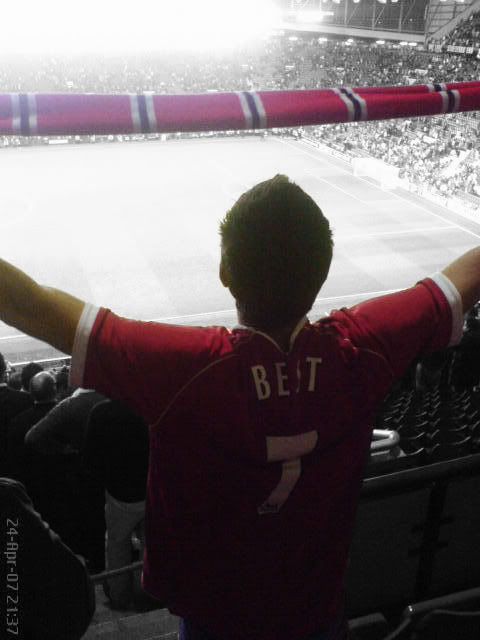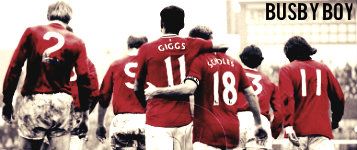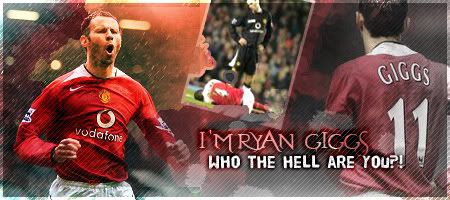Post by Scott on May 29, 2006 16:18:46 GMT
From The Times:
Our correspondent travels to Brazil to learn the philosophy according to Sócrates and the guardians of football's soul in the first of a four-part series
“IS THAT WHY YOU HAVE COME ALL this way? To discover whether it is more important to win or to play beautiful football?” The question is greeted with deep-belly laughter, as if the whole world should know the answer. The great man pauses, as if to give us Luddites a chance. “Beauty comes first,” he says at last. “Victory is secondary. What matters is joy.”
And that is the gospel according to Sócrates. He delivers it in a sitting of 90 minutes during which he sees off six beers, four cigarettes and every opinion to the contrary.
We have come to Brazil in search of the heart of football, to discover how strongly it still beats in its guardian nation. In order to find Sócrates, you must first fly to São Paulo and then another hour north-west to his home town of Ribeirão Preto. When you arrive, you find an old hero so concerned for the game that he is prepared to invest in Ronaldinho and the Brazil class of 2006 the responsibility of saving it.
A bit dramatic, perhaps, but a journey through Brazil reveals that he is not alone, that the high priests of the game in his country are with him. The game is changing, as of course it must, but Falcão, Rivelino, Romário and the great Pelé share a concern for its direction and see in this year’s Brazil a last chance to strike a note for romance.
The 2006 Seleção, as the team is known, is as extravagantly gifted as any for a generation. The coach, Carlos Alberto Parreira, has promised to start the World Cup playing what has become known as the “Magic Quartet”: an attack that includes Ronaldinho, Ronaldo, Adriano and Kaká. There are many who would like to see this become a quintet, with Robinho thrown in, but the potential of the quartet is ambitious and delicious enough in itself. The question, therefore, is whether they will unleash this potential — Parreira, for starters, is a conservative at heart. But what potential!
Brazilian football, for the purists, reached its peak in the Seleçãos of 1970 and 1982 and yet, says Sócrates: “This is the first team that we believe can play similarly to the 1982 team. Football today is more of a physical battle than anything else. This team can bring beauty back to the game and charm the world again.”
The reason we have sought out Sócrates, 54, is because the side he captained in 1982 — the star-studded midfield of himself, Falcão and Zico, plus Junior’s marauding runs from left back — may have succeeded in charming the world, but they did not make it past the second group stage. And that famous 3-2 defeat by Paolo Rossi’s Italy was the defining moment of Só crates’s life.
It does not appear to have remotely scarred him. Conversely, Falcão, who scored Brazil’s second goal in a memorable match, Sócrates having got their first, says that 24 years on he is still not allowed to forget it. These days, Falcão is a big player in the football media, but he does a lot of public speaking and wherever in the world he throws the floor open to questions, 90 per cent of them are about Italy and 1982.
Sócrates, meanwhile, has a healthy, eclectic and Falstaffian appetite for the world. He writes in the media and hosts a TV chat show. Last year he acted in a film and wrote a musical. He has no time left for the field in which he is professionally qualified, which is medicine.
“I love women and I love life and that’s what’s important,” he says. “I only do everything else in order to pay for that.” But he also loves the concept of the glorious defeat of 1982. “That Brazilian team represented fantasy, idealism, an idyll,” he says. “Italy represented efficiency, effectiveness. But at least we lost fighting for our ideals. And you can compare that to society today. We have lost touch with humanity, people are driven by results. They used to go to football to see a spectacle. Now, with very few exceptions, they go to watch a war and what matters is who wins. That is why I value the Seleção for this World Cup — it might just be a team with ideals.”
IN THE LONG HISTORY OF BRAZILIAN football there are two defeats that are not allowed to rest. One is to Italy in 1982, the other is the 2-1 loss to their diminutive neighbours, Uruguay, in the final match of the 1950 World Cup, in their very own Maracanã stadium, which is felt by some to be as great a tragedy as Brazil has ever experienced.
The effect of 1950 on the nation’s psyche is dissected brilliantly by Alex Bellos in his book Futebol, The Brazilian Way of Life, in which he tells how Zizinho, the team’s star player, would take his phone off the hook on July 16 — the anniversary of the final — every year until his death in 2002, because the media would still ring him and ask about it. Even more poignant is his story of Barbosa, the goalkeeper , who was blamed for the defeat for the rest of his life. “Under Brazilian law, the maximum sentence is 30 years,” Barbosa said. “But my imprisonment has been for 50.”
The 1982 defeat is not viewed in the same light, probably because Brazil had already won three World Cups by then, but also because of their brand of football. Falcão, though, took some years to grasp this.
“It wasn’t Brazil who were the losers in 1982,” he says, “it was the game. It was a step backwards for football. By the time Italy and West Germany played the final, I was back home in Brazil. I started watching it on TV but early on I got in the car and just set off. I drove for miles. I was hardly conscious, I wasn’t thinking where I was going. I found myself in another town where I used to play tennis with a friend, but I wasn’ t there to play tennis. I didn’t know why I was there.
“I remember tiny details of that Italy game: my goal, the funereal atmosphere in the dressing-room, the front page of a São Paulo newspaper which had no headline, no writing, nothing but a picture of a child crying. Many of us played on for Brazil after that, but the Italy game was never mentioned.
“Two years ago, Sócrates, Zico, Junior and I were all at Fifa’s 100-year anniversary party in London — it was the first time that we had ever talked about that game together. But what I realise now is that the Seleção of 1982 has its own place in history. When Brazilians are asked their favourite team, many choose 1982. I was once asked in public if I would rather have won but played less beautiful football. I answered: ‘I would rather have won.’ And many people were appalled. ‘Are you crazy?’ they said. ‘That was the most beautiful team ever. You can’t say that.’ ”
Which brings us back to Parreira and the modern day. Winning football, attractive football or both? “One thing shouldn’t exclude the other,” Falcão, 52, replies. “You can play beautifully and win the World Cup. It is wrong to say we lost in 1982 because of the way we played — 1982 was fate, it was predestined.
“Ask any Brazilian who won the World Cup in 1994 and they can’t tell you,” is Sócrates’s roundabout reply. “Ask about 1982 and they all know. It’s part of our culture. It’s just the way we are. Football, above anything else, brings Brazilians together, more than our language, more than our flag. The productivity of this country improves by 50 per cent when a popular team wins.”
Which sounds like an argument for success ahead of style. Again, Sócrates responds with that deep-belly laughter that indicates another case of international misunderstanding. “Brazilians like to party,” he says. “This is the land of the sun, the beaches, the beautiful women. We like to see beautiful things.”
So much for romance. The problem here is that the aforementioned champions of 1994 won by adopting safety-first tactics drummed into them by Parreira, who is back in the job. Which is why few believe that the same man will really chance his hand this time. Neither Falcão nor Sócrates believes that the Magic Quartet will survive to the knockout rounds.
“But what an opportunity they have,” Sócrates says, his arms out wide. “To say something fantastic about the game. To bring back the joy.”
THE WAY TO SAVE THE GAME
THE BEAUTIFUL GAME will never be the same unless we start playing nine-a-side. That is the view of Sócrates and he believes it so deeply that he has been working on a thesis on the subject for more than four years.
“There needs to be a change in the game to bring back what’s been lost,” he said. “Undoubtedly, there are still players who can overcome that loss through talent and art, like Ronaldinho, but these players are now so rare.”
Football, Sócrates said, has become a physical contest rather than one of skill, in which strength and fitness hold sway over technique and vision. “It’s all about proportions,” he said. “Thirty-five years ago, players used to run four kilometres per game, now they run 11 to 12 kilometres. So it follows that there is less space on the pitch.
“That is why, in the Fifties, Sixties and Seventies, we had a lot more players who were technically better. I’m not just talking about Brazil here, this goes for other countries, too. Think about Ronaldinho — in the Seventies we’d have had 100 to 200 players like him. He would have stood out, for sure, but not the way he does today.”
The answer, Sócrates said, is to reduce the number of players and create more space.
Given that he is a writer, composer, TV presenter and actor as well as a qualified (non-practising) doctor, Sócrates lacks the time to complete his thesis. “When I have finished it, I will put its message into practice,” he said.
Our correspondent travels to Brazil to learn the philosophy according to Sócrates and the guardians of football's soul in the first of a four-part series
“IS THAT WHY YOU HAVE COME ALL this way? To discover whether it is more important to win or to play beautiful football?” The question is greeted with deep-belly laughter, as if the whole world should know the answer. The great man pauses, as if to give us Luddites a chance. “Beauty comes first,” he says at last. “Victory is secondary. What matters is joy.”
And that is the gospel according to Sócrates. He delivers it in a sitting of 90 minutes during which he sees off six beers, four cigarettes and every opinion to the contrary.
We have come to Brazil in search of the heart of football, to discover how strongly it still beats in its guardian nation. In order to find Sócrates, you must first fly to São Paulo and then another hour north-west to his home town of Ribeirão Preto. When you arrive, you find an old hero so concerned for the game that he is prepared to invest in Ronaldinho and the Brazil class of 2006 the responsibility of saving it.
A bit dramatic, perhaps, but a journey through Brazil reveals that he is not alone, that the high priests of the game in his country are with him. The game is changing, as of course it must, but Falcão, Rivelino, Romário and the great Pelé share a concern for its direction and see in this year’s Brazil a last chance to strike a note for romance.
The 2006 Seleção, as the team is known, is as extravagantly gifted as any for a generation. The coach, Carlos Alberto Parreira, has promised to start the World Cup playing what has become known as the “Magic Quartet”: an attack that includes Ronaldinho, Ronaldo, Adriano and Kaká. There are many who would like to see this become a quintet, with Robinho thrown in, but the potential of the quartet is ambitious and delicious enough in itself. The question, therefore, is whether they will unleash this potential — Parreira, for starters, is a conservative at heart. But what potential!
Brazilian football, for the purists, reached its peak in the Seleçãos of 1970 and 1982 and yet, says Sócrates: “This is the first team that we believe can play similarly to the 1982 team. Football today is more of a physical battle than anything else. This team can bring beauty back to the game and charm the world again.”
The reason we have sought out Sócrates, 54, is because the side he captained in 1982 — the star-studded midfield of himself, Falcão and Zico, plus Junior’s marauding runs from left back — may have succeeded in charming the world, but they did not make it past the second group stage. And that famous 3-2 defeat by Paolo Rossi’s Italy was the defining moment of Só crates’s life.
It does not appear to have remotely scarred him. Conversely, Falcão, who scored Brazil’s second goal in a memorable match, Sócrates having got their first, says that 24 years on he is still not allowed to forget it. These days, Falcão is a big player in the football media, but he does a lot of public speaking and wherever in the world he throws the floor open to questions, 90 per cent of them are about Italy and 1982.
Sócrates, meanwhile, has a healthy, eclectic and Falstaffian appetite for the world. He writes in the media and hosts a TV chat show. Last year he acted in a film and wrote a musical. He has no time left for the field in which he is professionally qualified, which is medicine.
“I love women and I love life and that’s what’s important,” he says. “I only do everything else in order to pay for that.” But he also loves the concept of the glorious defeat of 1982. “That Brazilian team represented fantasy, idealism, an idyll,” he says. “Italy represented efficiency, effectiveness. But at least we lost fighting for our ideals. And you can compare that to society today. We have lost touch with humanity, people are driven by results. They used to go to football to see a spectacle. Now, with very few exceptions, they go to watch a war and what matters is who wins. That is why I value the Seleção for this World Cup — it might just be a team with ideals.”
IN THE LONG HISTORY OF BRAZILIAN football there are two defeats that are not allowed to rest. One is to Italy in 1982, the other is the 2-1 loss to their diminutive neighbours, Uruguay, in the final match of the 1950 World Cup, in their very own Maracanã stadium, which is felt by some to be as great a tragedy as Brazil has ever experienced.
The effect of 1950 on the nation’s psyche is dissected brilliantly by Alex Bellos in his book Futebol, The Brazilian Way of Life, in which he tells how Zizinho, the team’s star player, would take his phone off the hook on July 16 — the anniversary of the final — every year until his death in 2002, because the media would still ring him and ask about it. Even more poignant is his story of Barbosa, the goalkeeper , who was blamed for the defeat for the rest of his life. “Under Brazilian law, the maximum sentence is 30 years,” Barbosa said. “But my imprisonment has been for 50.”
The 1982 defeat is not viewed in the same light, probably because Brazil had already won three World Cups by then, but also because of their brand of football. Falcão, though, took some years to grasp this.
“It wasn’t Brazil who were the losers in 1982,” he says, “it was the game. It was a step backwards for football. By the time Italy and West Germany played the final, I was back home in Brazil. I started watching it on TV but early on I got in the car and just set off. I drove for miles. I was hardly conscious, I wasn’t thinking where I was going. I found myself in another town where I used to play tennis with a friend, but I wasn’ t there to play tennis. I didn’t know why I was there.
“I remember tiny details of that Italy game: my goal, the funereal atmosphere in the dressing-room, the front page of a São Paulo newspaper which had no headline, no writing, nothing but a picture of a child crying. Many of us played on for Brazil after that, but the Italy game was never mentioned.
“Two years ago, Sócrates, Zico, Junior and I were all at Fifa’s 100-year anniversary party in London — it was the first time that we had ever talked about that game together. But what I realise now is that the Seleção of 1982 has its own place in history. When Brazilians are asked their favourite team, many choose 1982. I was once asked in public if I would rather have won but played less beautiful football. I answered: ‘I would rather have won.’ And many people were appalled. ‘Are you crazy?’ they said. ‘That was the most beautiful team ever. You can’t say that.’ ”
Which brings us back to Parreira and the modern day. Winning football, attractive football or both? “One thing shouldn’t exclude the other,” Falcão, 52, replies. “You can play beautifully and win the World Cup. It is wrong to say we lost in 1982 because of the way we played — 1982 was fate, it was predestined.
“Ask any Brazilian who won the World Cup in 1994 and they can’t tell you,” is Sócrates’s roundabout reply. “Ask about 1982 and they all know. It’s part of our culture. It’s just the way we are. Football, above anything else, brings Brazilians together, more than our language, more than our flag. The productivity of this country improves by 50 per cent when a popular team wins.”
Which sounds like an argument for success ahead of style. Again, Sócrates responds with that deep-belly laughter that indicates another case of international misunderstanding. “Brazilians like to party,” he says. “This is the land of the sun, the beaches, the beautiful women. We like to see beautiful things.”
So much for romance. The problem here is that the aforementioned champions of 1994 won by adopting safety-first tactics drummed into them by Parreira, who is back in the job. Which is why few believe that the same man will really chance his hand this time. Neither Falcão nor Sócrates believes that the Magic Quartet will survive to the knockout rounds.
“But what an opportunity they have,” Sócrates says, his arms out wide. “To say something fantastic about the game. To bring back the joy.”
THE WAY TO SAVE THE GAME
THE BEAUTIFUL GAME will never be the same unless we start playing nine-a-side. That is the view of Sócrates and he believes it so deeply that he has been working on a thesis on the subject for more than four years.
“There needs to be a change in the game to bring back what’s been lost,” he said. “Undoubtedly, there are still players who can overcome that loss through talent and art, like Ronaldinho, but these players are now so rare.”
Football, Sócrates said, has become a physical contest rather than one of skill, in which strength and fitness hold sway over technique and vision. “It’s all about proportions,” he said. “Thirty-five years ago, players used to run four kilometres per game, now they run 11 to 12 kilometres. So it follows that there is less space on the pitch.
“That is why, in the Fifties, Sixties and Seventies, we had a lot more players who were technically better. I’m not just talking about Brazil here, this goes for other countries, too. Think about Ronaldinho — in the Seventies we’d have had 100 to 200 players like him. He would have stood out, for sure, but not the way he does today.”
The answer, Sócrates said, is to reduce the number of players and create more space.
Given that he is a writer, composer, TV presenter and actor as well as a qualified (non-practising) doctor, Sócrates lacks the time to complete his thesis. “When I have finished it, I will put its message into practice,” he said.










